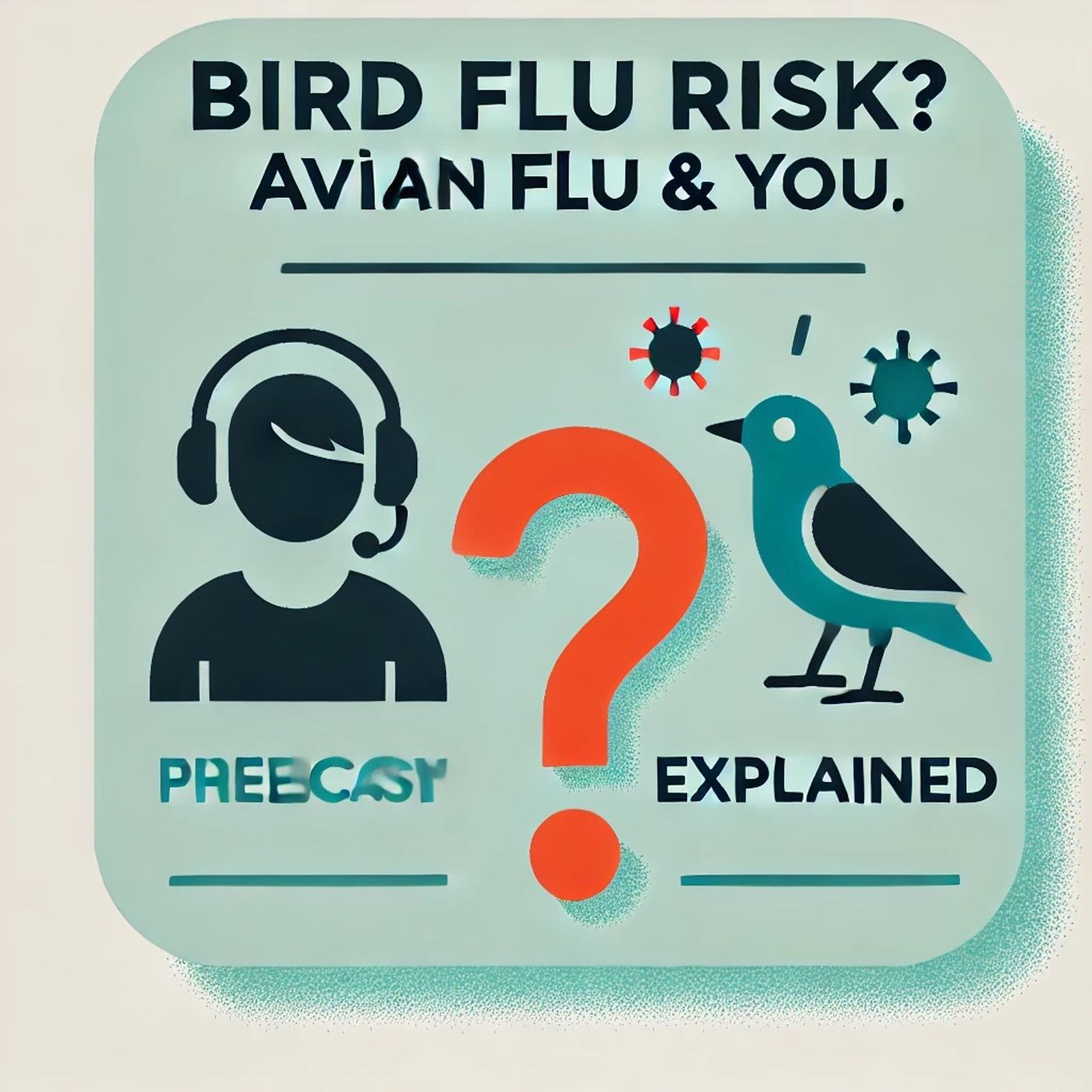Podcast Episode Details
Back to Podcast Episodes
Bird Flu 2025: Low Public Risk, Key Safety Tips for Workers Near Livestock and Poultry Outbreaks
Welcome to Bird Flu Risk? Avian Flu & You, Explained. I’m your host, here to break down what you need to know—personally—about bird flu or avian influenza right now, in October 2025.
Here’s the headline: According to the World Health Organization and CDC, **the risk of bird flu for the general public remains low**. Although avian flu A(H5N1) has appeared in birds, wild animals, and even dairy cattle this year, the global health impact is still considered minor. Most human infections have happened only in people *directly exposed* in high-risk settings, like poultry farms, with few and isolated cases overall.
Let’s get personal and talk about risk factors:
**Occupation**: Your job matters most. If you work with poultry, dairy cows, or other livestock—poultry workers, dairy hands, cullers, veterinarians, animal health responders, or lab workers handling raw milk—you're at *low to moderate* risk. That jumps if you don’t use protective gear or work around outbreaks. If you have no animal contact in your work, your risk is extremely low.
**Location**: Bird flu risk is highest in places with ongoing animal outbreaks. If you’re farming, especially in outbreak states or areas with recent wild bird die-offs or affected cattle, your risk is increased. Most urban residents and those not in agricultural settings face almost no risk.
**Age & Health Status**: Older adults and those with underlying health conditions are at higher risk of severe illness if infected, even though they’re less likely to be exposed unless they’re in one of the jobs we mentioned. Children tend to get less sick, but close contact with backyard flocks can expose them.
Now, let’s try a “risk calculator” scenario, walking through a few types of listeners:
- You work in an office, no animal contact, healthy adult: Your risk is near zero—there’s no need to worry.
- You’re a farmworker milking cows near a recent outbreak: Wear protective equipment! Your personal risk is higher, but can be brought down with strict safety practices.
- You keep backyard hens but there’s been no bird flu in your area: Keep monitoring your flock’s health and practice good hand hygiene—vigilance, not worry, is your best approach.
- You’re over 65 with a chronic illness but don’t handle animals: Your risk is no higher than anyone else outside animal exposure—but see a doctor fast if you develop a flu-like illness and have any animal contact history.
**Guidance for high-risk listeners**: Wear masks and gloves around sick animals. Avoid raw milk and minimize direct animal contact when outbreaks are reported. If you develop fever, cough, or eye symptoms after animal contact, seek medical care without delay.
**For most people**: The chance of catching bird flu remains very low. According to the Center for Health Security, no new cases have been reported among the general public in the US for several months, and community spread has not been seen.
Here’s a quick decision-making checklist: Are you working with sick birds, cattle, or their raw products? Take strict protective steps. Otherwise, stay aware but not anxious—if you don’t have animal exposures, relax and carry on as usual.
Thanks for tuning in! Come back next week for more. This has been a Quiet Please production. For more from me, check out Quiet Please dot A I.
For more http://www.quietplease.ai
Get the best deals https://amzn.to/3ODvOta
This content was created in partnership and with the help of Artificial Intelligence AI
Published on 2 days, 16 hours ago